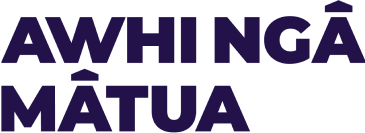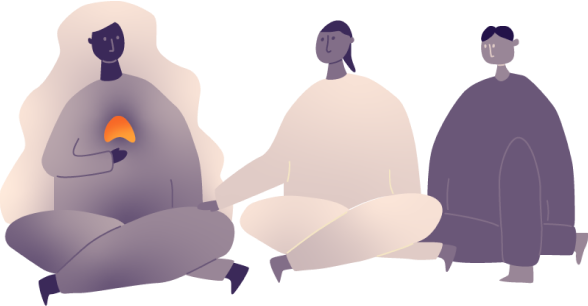Awhi is still in development, we'd love your feedback and suggestions. Let us know.
My Child is Anxious – But How Do I Know if they Need Professional Help?
We all feel anxiety at times, including your child.
If your child’s anxiety has become overwhelming and is interfering with their ability to go to school, socialise, continue with their sports or hobbies, or even leave the house, it’s time to seek professional help.
As a first step, you may want to talk to your child’s teacher, the school counsellor, their sports coach and any other significant adult in their life – to get as full a picture as possible on their anxiety. Your next step is to get a referral to see a child psychologist/therapist from your GP.
It is important to get professional treatment as early as possible as an ongoing heightened state of anxiety, can negatively affect aspects of brain function. Good therapy, on the other hand, can rewire the brain – literally! That's easier said that done, when sometimes our system isn't set up to support parents to support their kids. But keep trying. You're not alone in this fight.
What if my child doesn’t want to see a therapist?
Explain to your child that seeing a therapist to help them sort out their anxiety, is no different to seeing the doctor when they have a sore throat or stomach-ache. Take a positive, matter-of-fact approach.
When children begin therapy, they are often relieved to know that, not only is their problem pretty common, but also there are practical things they can do to overcome it.
Therapists report that what often does upset children, is seeing their parent/s distressed or worried on their behalf. It is much more supportive to your child, to demonstrate your confidence in their ability to get better.
How do I know if they are the right therapist for my child?
Not all sizes fit, and not all therapists will be right for your child. Your child needs to be able to trust their therapist with their deepest fears and concerns.
But give it time, if they don’t connect on the first session, try one or two more sessions before deciding to try another therapist.
What will the therapist do for my child?
Good therapists know that building trust and rapport between themselves and your child is the basis for successful treatment.
It is likely that they will begin with encouraging your child to do an inventory of their strengths and weaknesses, so that they can see themselves as a complete individual, flaws and all.
The most commonly used approach to treating anxiety in New Zealand, both for adults and children is Cognitive Behavioural Therapy (CBT). This is a practical approach to challenging the worrying thoughts and behaviours that lead to a heightened state of anxiety.
CBT helps children change their thinking that leads them to excessive worrying. It also helps them cope with the physical symptoms of anxiety – such as a racing heart, feeling hot and sweaty, and shaky legs – so that they are reassured nothing is physically wrong with them. Finally, CBT also helps children address the behaviours associated with anxiety – which most often, is avoiding whatever activity, situation or thing that frightens them. Therapists will empower children to gradually acclimatise themselves to their fears, until they no longer need to avoid them altogether.
How long before my child feels better?
Many people report feeling less anxious after only a few sessions. Typically, courses of therapy last for 12 to 20 weeks on one-hour sessions per time.
The aim is not to provide a ‘cure’ for anxiety, but to provide children with tools and strategies to manage their anxiety over a lifetime.
For more on anxiety, other articles are available on Awhi Nga Matua. You might also find the resources below useful, which includes books from the IHC Library as well as helpful websites and helpline numbers. Or contact the IHC library direct to have a chat about what you need on 0800 442 442 or email: Librarian@ihc.org.nz.
Helpful websites:
Time Timers available at www.autismresources.co.nz
Depression NZ: www.depression.org.nz
Helplines:
Anxiety New Zealand: 0800 269 4389 (0800 ANXIETY)
1737: Free call or text 1737 to talk to a trained counsellor
Depression.org.nz: 0800 111 757 or text 4202
Kidsline (for people up to 18 years): 0800 543 754
Whats Up (for 5 to 18-year-olds): 0800 942 8787
thelowdown.co.nz , Web chat, email chat or free text 5626
Youthline: 0800 376 633, free text 234, email talk@youthline.co.nz
Lifeline: 0800 543 354
Samaritans: 0800 726 666
Suicide Crisis helpline: 0508 828 865 (0508 TAUTOKO)
Resources
Worry-proofing your anxious child /
Worry-proofing your anxious child /
If your child too often: seeks reassurance, invents illnesses,...
If your child too often:...
The no worries guide to raising your anxious child :
The no worries guide to raising your...
This two-in-one handbook will help you to understand your child's...
This two-in-one handbook...
The no worries guide to raising your anxious child :
The no worries guide to raising your...
This two-in-one handbook will help you to understand your child's...
This two-in-one handbook...
Overcoming anxiety in children and teens /
Overcoming anxiety in children and teens /
The key to this book is that it outlines both the science and art...
The key to this book is...
Healthy mindsets for little kids :
Healthy mindsets for little kids :
This flexible, early-intervention programme utilises hands-on...
This flexible,...
Helping your child with worry and anxiety /
Helping your child with worry and anxiety /
How to parent your anxious toddler /
How to parent your anxious toddler /
Why does your toddler get upset when his or her routine is...
Why does your toddler get...
How to parent your anxious toddler /
How to parent your anxious toddler /
This accessible guide demystifies the difficult behaviors of...
This accessible guide...
Starving the anger gremlin for children aged 5-9 :
Starving the anger gremlin for children...
Help children to understand and manage their anger with this fun...
Help children to understand...
Starving the anger gremlin for children aged 5-9 :
Starving the anger gremlin for children...
Help children to understand and manage their anger with this fun...
Help children to understand...
Skylight Trust :
Skylight Trust :
Skylight Trust supports people of all ages throughout New Zealand...
Skylight Trust supports...
Relaxation guides for kids :
Relaxation guides for kids :
"Whatever your personal situation right now, meditation can help...
"Whatever your personal...
Anxiety :
Anxiety :
Learn about anxiety, signs to look for, how your doctor determines...
Learn about anxiety, signs...
Anxiety NZ :
Anxiety NZ :
"Anxiety New Zealand Trust supports people living with anxiety and...
"Anxiety New Zealand Trust...

Resources for kids
Aroha's way :
Aroha's way :
"Come along on a journey with Aroha as she wards off nervousness,...
"Come along on a journey...
Please explain "anxiety" to me! :
Please explain "anxiety" to me! :
This book translates anxiety from the jargon of psychology into...
This book translates...
Hey awesome /
Hey awesome /
If kids with anxiety could see their strengths, they would feel so...
If kids with anxiety could...
Hey warrior /
Hey warrior /
Kids can do amazing things with the right information....
Kids can do amazing things...
Dealing with anxiety /
Dealing with anxiety /
This book will help you to understand what anxiety is, see how your...
This book will help you to...
.jpg&w=128&q=75)
Meryl Richards
I’m Meryl Richards. What a pleasure it’s been to join the Awhi team. I get to spend my days researching information that supports me as a parent, and sometimes challenges me to rethink what I thought I knew. My hope is that it will be useful to you too. I live in Kapiti with my partner and two teenage boys, and spend as much time as possible in the surrounding bush and at the beach.
Was this resource helpful to you?


The Awhi Ngā Mātua team would like to thank Takai, the IHC Foundation and the Dines Family Charitable Trust for their generous contributions to our work. A huge thank you also to the IHC Programmes team, in particular the IHC Library which has worked so hard to make their remarkable collection available to us.




.jpg&w=3840&q=75)




